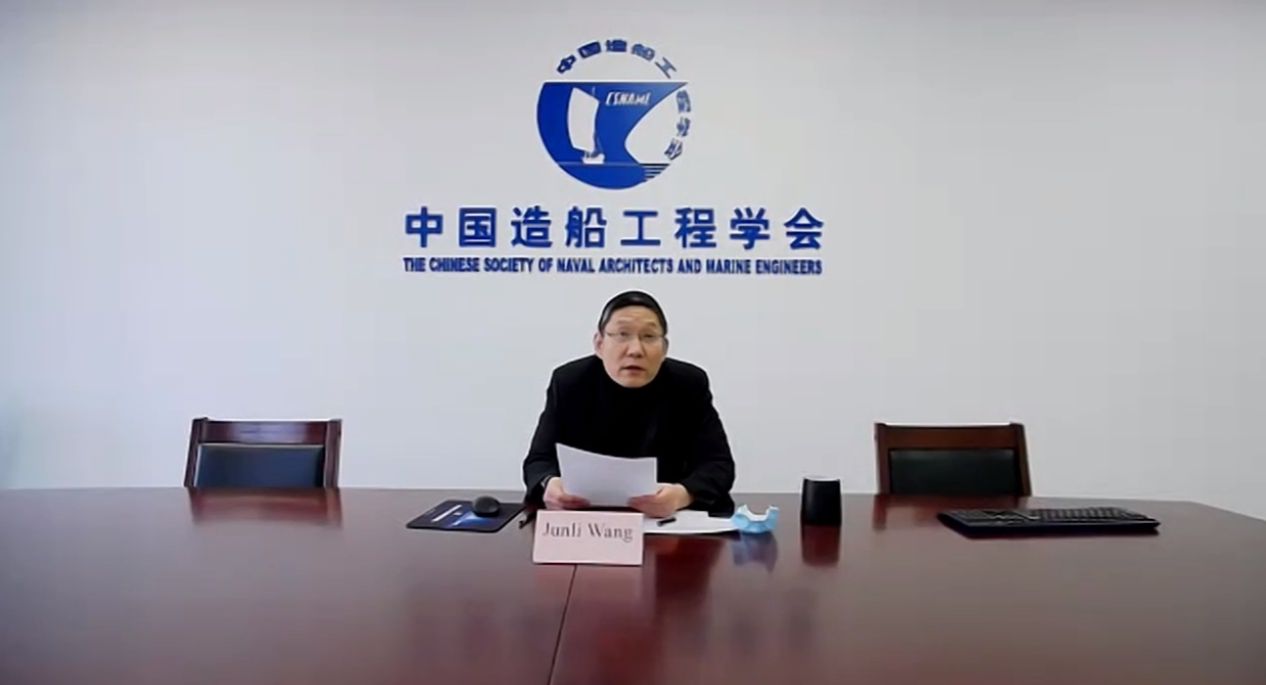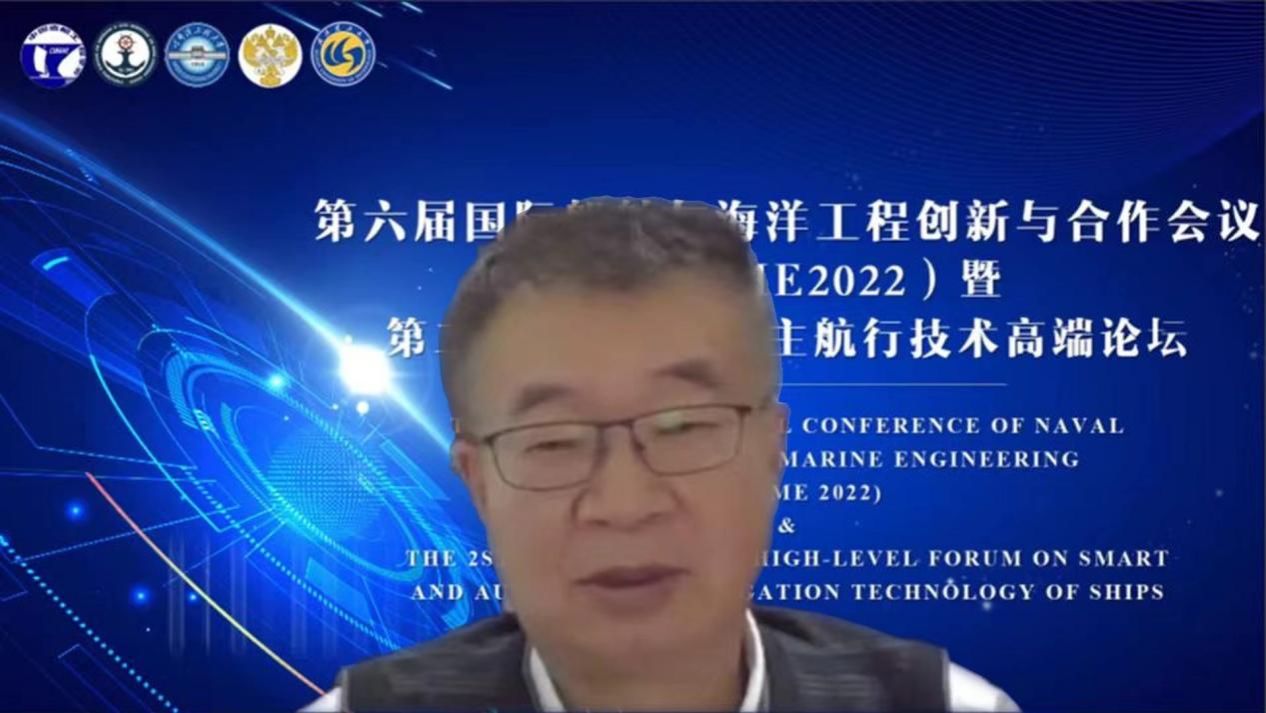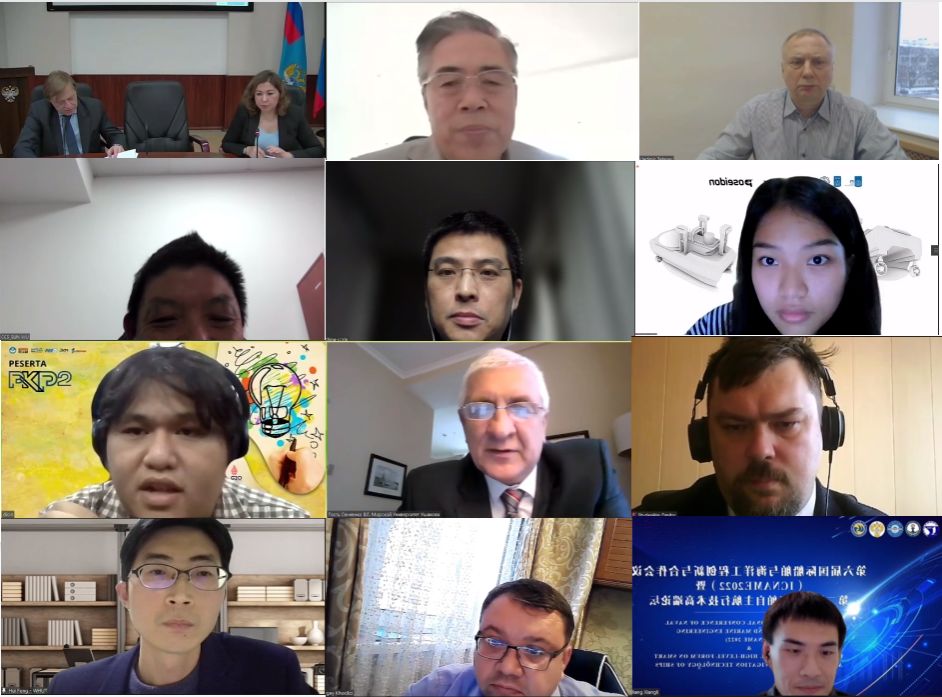On December 22, The 6th International Conference for Innovation and Cooperation Naval Architecture and Marine Engineering (the Second International High end Forum on Autonomous Navigation Technology of Ships) was held.
The experts and scholars from 11 universities, research institutions, and enterprises, including Russian Malinnet Industry Center, Russian Shipping and Harbour Corporation, Far Eastern State Transport University, Ushakov State Ocean University, Indonesian Surabaya Technology Institute(ITS), China Institute of Navigation,, China Classification Society, Shanghai University, Shanghai Merchant Design and Research Institute, Wuhan University of Technology, and Harbin Engineering University attended the online meeting.

The meeting carried out in-depth exchanges regarding smart ships, autonomous ships, and unmanned ships. Experts discussed how to accelerate the promotion of cutting-edge innovative technologies such as intelligent, unmanned, and digital ships. The meeting also deepened international scientific and technological cooperation in the field of ships and marine engineering, and jointly promoted scientific and technological progress in the field of international ships and seas.

President Alexander Krimov of Far Eastern State Transport University, the rotating chairman of the forum, introduced the preparations for the forum. Alexander Pinsky, the head of Russian Malinnet Industry Center, Wang Junli, the secretary-general of Chinese Society of Naval Architects and Marine Engineers, and Xia Guihua, the chairman of International Innovation and Cooperation in Naval Architecture and Marine Engineering Alliance, delivered speeches respectively.

The experts and scholars made 11 reports, shared the current situation and development trend of China and Russia's smart ships, and related research on advanced technologies of unmanned ships, involving the industry needs and cutting-edge scientific issues in the field of ship and ocean engineering such as autonomous navigation ships, surface unmanned ships, and autonomous tugs, etc.

The forum was hosted by Chinese Society of Naval Architects and Marine Engineers, International Innovation and Cooperation in Naval Architecture and Marine Engineering Alliance (ICNAME), Harbin Engineering University, Far Eastern State Transport University and Wuhan University of Technology.
This forum is undertaken by International Joint Laboratory of Ship Intelligence and Autonomous Navigation Technology, the Key Laboratory of the Ministry of Education for Ship and Marine Equipment Intelligent Technology and Application of Harbin Engineering University and the Key Laboratory of High-Performance Ship Technology of the Ministry of Education of Wuhan University of Technology.
Since its establishment in June 2015, International Innovation and Cooperation in Naval Architecture and Marine Engineering Alliance (ICNAME), led by HEU, has received extensive response and support from the domestic and foreign industries ship and ocean, and the number of council units and observer units has been increasing.
On November 16, 2021, at the Fifth International Conference on International Innovation and Cooperation in Naval Architecture and Marine Engineering (the First International High end Forum on Autonomous Navigation Technology of Ships) in Harbin Engineering University, Krimov and Xia Guihua jointly launched the initiative of establishing International Joint Laboratory of Ship Intelligence and Autonomous Navigation Technology, and College of Intelligent Systems Science and Engineering of HEU undertook the joint laboratory construction.
The forum carries out in-depth exchanges around ship autonomous navigation technology, aiming to promote international scientific and technological cooperation in the field of ship and ocean engineering based on International Joint Laboratory of Ship Intelligence and Autonomous Navigation Technology, and jointly meet the challenges posed by the development of unmanned ships.
